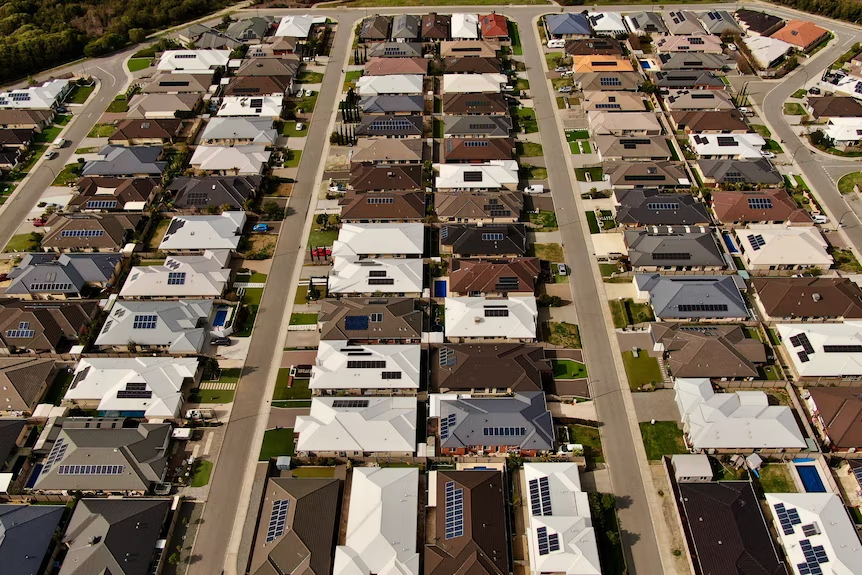
Construction Chaos Reveals New Opportunities
Construction Chaos Reveals New Opportunities
Australia's Construction Crisis Demands Urgent Reform
After 25 years in financial services and technology, I've witnessed market disruptions that fundamentally reshape entire industries. What's happening in Australia's construction sector right now is deeply concerning, but it's also revealing critical flaws in how we finance commercial real estate in this country.
The numbers tell a troubling story. Over 5,000 construction companies have collapsed across Australia in just 24 months¹. Behind each of these failures are real people losing their jobs, subcontractors not getting paid, and projects left incomplete.
The systemic breakdown we're witnessing isn't just about individual company failures. It's exposing fundamental inefficiencies in our financing systems that, if addressed, could help prevent future collapses and create a more stable industry for everyone.
NSW's housing reforms aim to unlock 112,000 new homes through "missing middle" development². The Transport Oriented Development Program targets another 170,000 homes over 15 years³. These initiatives represent genuine housing solutions Australia desperately needs.
The $50 Billion Financing Challenge
Traditional construction financing in Australia still operates with outdated systems. Relationship-dependent processes. Manual workflows. Phone calls and spreadsheets managing billion-dollar decisions.
When builders collapse mid-project, that entire financing ecosystem fails with them, and the human cost is always significant.
The data reveals the scale of the challenge. Only 173,200 dwellings were completed in 2024 against a target of 240,000⁴. That's a 28% shortfall representing approximately $50 billion in unmet financing demand and thousands of jobs that should exist.
This represents both significant risk and the urgent need for more resilient financing systems.
The problem isn't capital availability. It's the archaic systems that fail to efficiently connect capital to viable projects.
Digital Infrastructure Can Stabilise The Industry
Having built global trading systems that processed $8 billion in turnover within two years at CBA, I understand how digital transformation can create more stable, efficient financial processes.
The construction crisis is highlighting what should have been addressed years ago: the need for standardised, transparent, globally accessible commercial real estate financing that reduces systemic risk.
Digital platforms that automate KYC processes, standardise loan comparisons, and provide real-time access to global capital markets aren't just efficiency tools. They're stability mechanisms that can help prevent the kind of financing bottlenecks that contribute to company failures.
NSW's affordable housing bonus schemes offer up to 30% floor space ratio increases for developments including affordable units⁵. But developers need financing certainty within weeks, not months, to make these projects viable and keep construction workers employed.
More reliable financing processes mean more predictable project outcomes and more secure employment across the industry.
Global Capital Can Support Australian Jobs
Australia's construction challenges coincide with global capital seeking stable opportunities. International financiers want exposure to Australian projects but struggle with local compliance requirements and relationship networks.
Digital platforms can solve this by providing verified, standardised deal flow to global capital sources. They eliminate the information gaps that have historically limited international financing for Australian projects.
Instead of relying on a handful of local banking relationships that may be stressed during market downturns, property developers can access 70+ global financiers through standardised digital processes.
This creates a more resilient financing ecosystem that's better equipped to support ongoing construction activity and employment, even during challenging periods.
Certainty Protects Projects and Jobs
In volatile markets, financing certainty becomes crucial for project viability.
Property developers and their CFOs need reliable financing terms, clear approval timelines, and dependable counterparty relationships. Traditional financing processes struggle to provide this certainty when market conditions are unstable.
Digital platforms offering transparent, standardised processes with verified global financiers can provide the predictability that keeps projects moving forward and construction teams employed.
Projects with reliable financing can proceed on schedule. Projects with uncertain financing face delays or cancellation, directly impacting employment and housing supply.
The financing landscape needs to shift from relationship-based complexity toward technology-enabled transparency. Commercial mortgage brokers and real estate investors who understand this transition can help create more stable outcomes for the entire industry.
This construction crisis doesn't have to define Australia's commercial real estate future.
It can catalyse the digital transformation that creates a more stable, efficient, and resilient financing system for everyone in the industry.
References
¹ Forward Path Advisory. "Building Company Insolvencies in Australia May 2023 to May 2025." https://www.forwardpathadvisory.com.au/2025/05/30/building-company-insolvencies-in-australia-may-2023-to-may-2025/
² NSW Department of Planning and Environment. "Low and Mid Rise Housing Policy." https://www.planning.nsw.gov.au/policy-and-legislation/housing/low-and-mid-rise-housing-policy
³ NSW Government. "Transport Oriented Development Program." https://www.nsw.gov.au/media-releases/more-homes-and-jobs-near-transport-as-masterplans-finalised
⁴ Australian Property Update. "Crisis: The State of Australia's Housing System in 2025." https://australianpropertyupdate.com.au/apu/crisis-the-state-of-australias-housing-system-in-2025
⁵ NSW Department of Planning and Environment. "Housing State Environmental Planning Policy." https://www.planning.nsw.gov.au/policy-and-legislation/housing/housing-sepp

